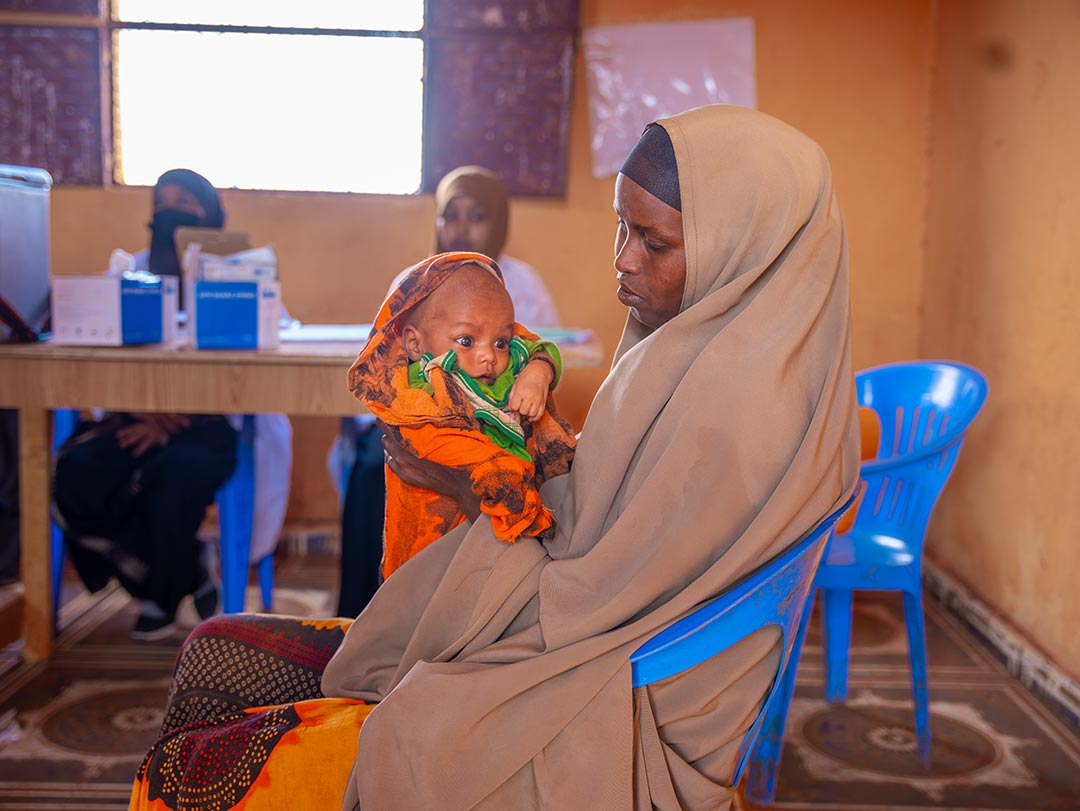Gavi commissioned Ipsos to undertake an independent evaluation of Gavi's contribution to reaching zero-dose children (ZDC) and missed communities between September 2022 and October 2025. This evaluation analysed how Gavi’s funding and non-funding instruments, and its Secretariat architecture, facilitated critical interventions and global health outcomes in the countries it supports. The purpose of this evaluation is to enable the Gavi Board, Gavi Secretariat and Vaccine Alliance partners to better understand how their work contributes to immunising ZD children and missed communities in Gavi-eligible countries. It provided robust and credible data to enable programmatic improvements during Gavi 5.0/5.1 and to inform the development of Gavi 6.0.
Evaluation Objectives
The evaluation was designed to support cross-programme learning by responding to objectives and evaluation questions agreed on in the inception phase (see year 1 report). This second annual report covers year 2 (Year 2) of the evaluation, which aims to build on the emerging lessons learned in year 1 (baseline). It also aims to capitalise on the opportunity provided in 2024 to harness targeted learning to inform crucial Board and Secretariat strategic decisions related to the new strategy (Gavi 6.0) being drafted and agreed.
Year 2 of the evaluation was structured around five thematic focus topics (FTs), each owned by an FT lead within the evaluation team. Each of the five FTs represents an area of work that is of priority to the Gavi Secretariat, based on areas of interest most likely to inform preparation and concepts for Gavi 6.0.
The use case is expected to contribute to strategic and programmatic decision-making regarding course correction for Gavi 5.0/5.1 and development of Gavi 6.0 in relation to the zero-dose agenda.
Evaluation methods
The evaluation uses mixed methods and is theory-driven, employing qualitative hypothesis testing underpinned by robust evaluation questions. Where possible, existing information was used, including grant reporting, joint appraisals (JAs), and other internal documentation and data. Supplementing this information, Gavi undertook global interviews for each policy area until theoretical saturation was achieved. It additionally conducted interviews at the national level in each case study country.
Findings and conclusions
Overall, Ipsos presented 18 key findings, 15 conclusions and 30 recommendations. Following validation meetings with relevant Secretariat colleagues, five priority recommendations were identified for further action.
Recommendations
- Gavi Board, Alliance partners: Invest and enhance measurement and monitoring of ZD-specific and -linked indicators, especially at country level. Track timely achievement of intermediate results or completion of actions in the performance and risk monitoring plan, as well as links to financial reporting in Gavi 6.0. The planned development of the 6.0 Theory of Change and measurement framework will need to include a clear and measurable vision for reducing the number of ZDC. It must outline specific objectives, targets and indicators for tracking implementation progress that can be measured, monitored and embedded in Gavi’s data management systems effectively. This needs to be shared with donors (with agreed normative definitions), using in-country data where possible to reduce burden.
- Gavi Secretariat, Alliance partners: Refine the Partners’ Engagement Framework (PEF) to enhance responsiveness to context and implementing partner needs, including at subnational level. Ensure it delivers on ZD objectives. Streamline and realign funding levers to enable longer-term funding for core technical assistance. Work with core and expanded partners to identify technical assistance (TA)needs throughout the grant cycle and ways to work more efficiently to facilitate and expedite grant absorption at subnational level (particularly in reaching ZD communities). Rigorously update and promote a database of pre-screened partners to support the inclusion of non-core partners (CPs)..
- Gavi Board, Gavi Secretariat: Commit to PHC integration and health system strengthening (HSS) at the core of the immunisation agenda. Use the forthcoming Health Systems Strategy to clearly define Gavi’s approach to PHC integration, and reduce grant funding siloes between Gavi and other institutions. This includes expanding investment in pooled funds and other joint financing initiatives. Reduce fragmentation of grant investments in HSS and ZD-focused programmes. Consider developing a more differentiated approach to HSS and PHC investments; and invest in cash grants that explicitly improve programmatic and financial sustainability of immunisation programmes.
- Gavi Secretariat: Consider setting up a distinct department that focuses on delivering services in humanitarian contexts. This team could have responsibility for implementation of relevant policies related to fragile and humanitarian contexts – e.g. Fragility, Emergencies and Displaced Populations (FED) policy, to enable ZD services in humanitarian contexts across the whole Gavi portfolio. Funds from this department should be applied in a much more agile and acute way, focusing on specific contexts with higher risk-appetite. The department should also work with greater independence from other Gavi processes (for example, country teams) than the current ZIP. Consider defining mechanisms to substitute funds with other Gavi resources, particularly HSS and Equity Accelerator Funding (EAF).
- Gavi Secretariat: Define and develop advocacy for ZD within the IRMMA framework. Gavi’s Public Policy and Engagement (PPE) team, as the mandate holder for advocacy, should outline a ZD advocacy approach aligned with the IRMMA framework and lead coordination guide implementation among Gavi core and expanded partners. This approach should define clear objectives, key messages, target audiences and measurable outcomes. PPE will lead coordination efforts; establish a structured engagement plan; and guide implementation among Gavi core and expanded partners. Additionally, PPE will set up regular progress reviews, identify key advocacy opportunities and ensure alignment with broader Gavi priorities.
Documents
Evaluation of Gavi’s contribution to reaching zero-dose children and missed communities for year 2
- Final report: Download
- The Evaluation Advisory Committee (EAC) assessment
- The Evaluation Management Response (EMR) summary

